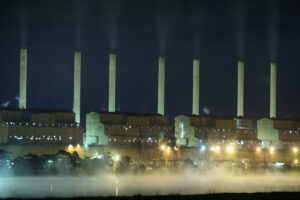Share
In the last minutes of the 1997 Kyoto conference on climate change, Australia extracted a vital concession by insisting that countries be allowed to include emissions from land clearing in their greenhouse accounting. The Government knew that land clearing had declined sharply since the accepted base year of 1990, so even before the ink was dry, Australia’s emissions had fallen by 5 to 10 per cent. The shift of government research funding from renewables to geosequestration and the recent interest in nuclear power suggest that the Government’s strategy is to actively delay any moves to temper the growth of Australia’s emission’s for 20 years or more.
Related documents
Between the Lines Newsletter
The biggest stories and the best analysis from the team at the Australia Institute, delivered to your inbox every fortnight.
You might also like
We need Labor’s Mr Fixit to fix the environment, not the politics
Environment Minister Murray Watt is known as Labor’s political “fixer” – Australians have given him the opportunity to fix something for us, and our planet. The Environment Protection and Biodiversity Conservation Act (EPBC) was enacted in 2000 as the country’s first attempt at a holistic approach to balance the desire for growth with the need
Ensuring workers’ safety in the climate crisis
As I watched the fires in Los Angeles unfold in January this year, my mind of course reflected on the 1999-2000 Black Summer bushfires in Australia. Both these seasons have wrought significant damage to humans and other animals, and to land, infrastructure and property. There has been a huge personal, collective and financial toll involved.
Climate target malpractice. Cooking the books and cooking the planet.
As the Albanese government prepares to announce Australia’s 2035 climate target, pressure is mounting to show greater ambition.



